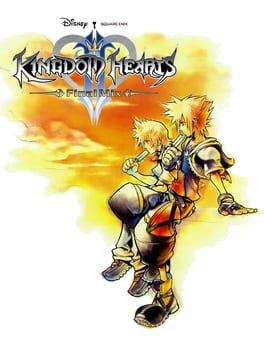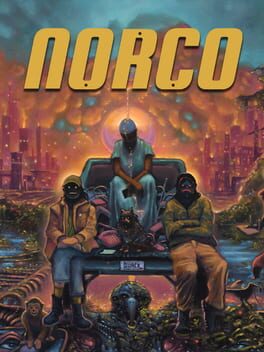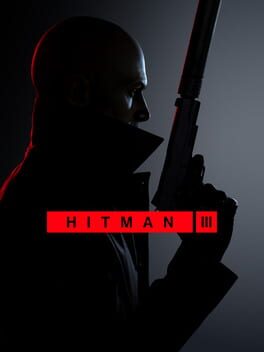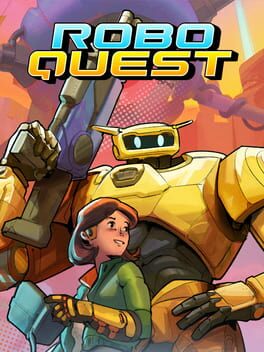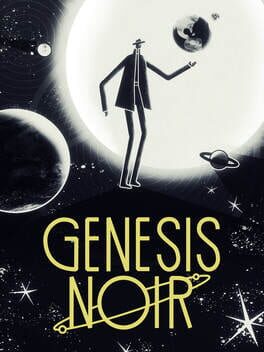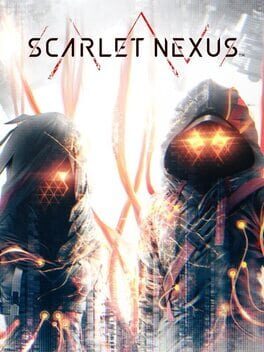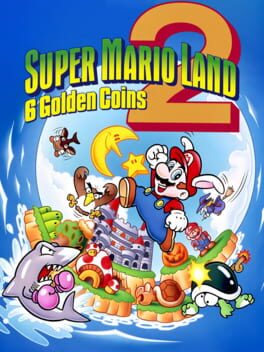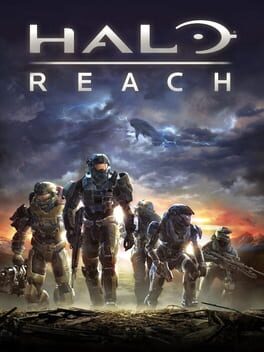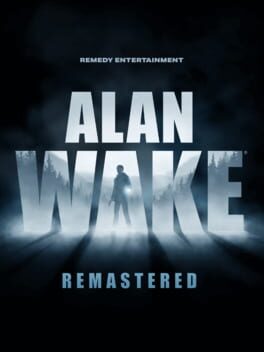MagoDaZueira
39 reviews liked by MagoDaZueira
truly one of the best sequels ever made. kingdom hearts 2 improves massively on every aspect of it’s charming but flawed predecessor. at least on critical, the combat is polished to a sheen, with a really refreshing balance between straight-forward inputs and nuanced resource management. combos are dead simple, but kh2 isn’t really about combos in the first place. instead, the player is forced to consider their resources moment-to-moment, and how to get as much as they can out of everything. a lot of these battles are very tight squeezes (or at least they were for me, as i’m a bit inexperienced w action games), and it’s extremely satisfying to win because of a perfectly timed drive form or clever choice of summon. in this sense, i think KH2 gets a lot of mileage out of its fusion of character action and JRPG mechanics. it’s very approachable on a basic mechanical level, but still offers enough nuance to where players can feel confident that they truly learned a lot about the game’s inner workings over the course of their playthrough. a great rpg is balanced by the player’s knowledge of the game, and a great action game is balanced by the player’s muscle memory of the game, but despite these goals seeming completely adverse to each other, kh2 really manages to combine both into a package that i’m confident would please any fan of either genre. i’m not sure how true this would be on the other difficulties, since critical felt almost exactly perfectly balanced to me, but the good side of this is that the combat fundamentals in kh2 are enjoyable enough on their own that you could really just combo trash mobs for a few hours and have fun. there’s still some fights i think are poorly handled (the final boss being by far the worst fight in the game seems to be a kingdom hearts tradition at this point), but when 95% of the game is THIS fun, i really cannot complain. outside of the combat, i’d still say kh2 is an improvement on the original game, but a more marginal one. gimmick sections don’t run as long and control much better than in kh1, but i wouldn’t really say they’re a highlight. navigating worlds is much less obnoxious because of the increased linearity, but this does come with the trade off of many of these areas feeling like themed hallways. i could see people being turned off by just how direct this game is about what it needs you to do, but honestly, i don’t play these games for environmental gimmicks or platforming, so it just doesn’t bother me. the tighter level design also comes with the benefit of creating more controlled pacing for each world without making each world feel rushed or lacking in content. enemy variety is also very good for the majority of the game, though i did feel that enemies reliant on zoning (mages, snipers) didn’t feel as different from other heartless/nobodies as those enemy types did in kh1. these are very small nitpicks though, the majority of my time in KH2FMCM was an absolute blast.
when it comes to storytelling, i’d also say KH2 is mostly an improvement on KH1, though maybe a little less focused than CoM. the concept of nobodies is a really interesting one, but i think they were either written in a contradictory manner by accident, or the narrative is just unwilling to interrogate their existence. we’re told nobodies are essentially monsters imitating the appearance of humanity, but with the information we get within the narrative, that simply can’t be true. we see time and time again that nobodies are capable of feeling emotion, and are very capable of having human flaws; in everything but name they really may as well be humans, and xemnas makes a fairly strong argument when he questions why sora even cares. sora has a personal connection to the events, sure, but he isn’t aware of that until very late into the story anyways. the organization’s goals are, in my opinion, deeply sympathetic. we know from playing as roxas for the intro how unfair their nonexistence is, we can tell that they’re “real” people in many ways, we see several of them get actual development. it’s strange, because i can’t really tell what they’re trying to get across. if nobodies are really emotionless zombies filled with malice, why go through the effort to make us care about roxas and axel? if they’re human in all but name, why have sora spend the plot trying to kill them mostly just because he was told to by some old wizard? the meaning to sora’s narrative is similarly confusing to me; considering KH1 and CoM were such strongly focused around the development of their main characters, it felt odd to me that I couldn’t really think of a definitive statement KH2 was trying to make when it came to sora. is it about self-acceptance? is it about sora conquering nihilism? i really couldn’t tell you. on the bright side, the disney worlds are far more interesting, and the hints at a greater lore are all really cool. just wish it felt more coherent as a single story.
when it comes to storytelling, i’d also say KH2 is mostly an improvement on KH1, though maybe a little less focused than CoM. the concept of nobodies is a really interesting one, but i think they were either written in a contradictory manner by accident, or the narrative is just unwilling to interrogate their existence. we’re told nobodies are essentially monsters imitating the appearance of humanity, but with the information we get within the narrative, that simply can’t be true. we see time and time again that nobodies are capable of feeling emotion, and are very capable of having human flaws; in everything but name they really may as well be humans, and xemnas makes a fairly strong argument when he questions why sora even cares. sora has a personal connection to the events, sure, but he isn’t aware of that until very late into the story anyways. the organization’s goals are, in my opinion, deeply sympathetic. we know from playing as roxas for the intro how unfair their nonexistence is, we can tell that they’re “real” people in many ways, we see several of them get actual development. it’s strange, because i can’t really tell what they’re trying to get across. if nobodies are really emotionless zombies filled with malice, why go through the effort to make us care about roxas and axel? if they’re human in all but name, why have sora spend the plot trying to kill them mostly just because he was told to by some old wizard? the meaning to sora’s narrative is similarly confusing to me; considering KH1 and CoM were such strongly focused around the development of their main characters, it felt odd to me that I couldn’t really think of a definitive statement KH2 was trying to make when it came to sora. is it about self-acceptance? is it about sora conquering nihilism? i really couldn’t tell you. on the bright side, the disney worlds are far more interesting, and the hints at a greater lore are all really cool. just wish it felt more coherent as a single story.
Norco
2022
Beaten: Mar 28 2022
Time: 5.3 Hours
Platform: Mac
Well, this is the second game I can remember that got me to tear up. The other one was Mother 3, which managed to catch me off guard at the very end of the game with a warm embrace, a shoulder to cry on who’s existence was what got me to open up those ol tearducts that don’t see as much use as they probably should. Norco hits different, but also the same. At least as far as the crying came about. There was a small moment partway through that gave me those same emotions, an optional small warm cozy patch to stick for a while, get your bearings, and brace for your return to the dour world on display, and that got me primed I think. But it was a scene closer to the end that really got me, and while I didn’t cry as hard as Mother 3, it was enough.
But uh anyways, it’s also a game! Not just a crying simulator! As a game, and a piece of southern-gothic-cyberpunk media, it’s very fucking cool!!! So it’s a pixely point and click adventure game set in Norco (wow, who woulda thought), which is a real place in Louisiana, known for being the home of a Shell petroleum refinery according to Wikipedia. Now, I knew Norco was real, but I just learned about the Shell refinery thing as I was looking it up to write that sentence, and wow that makes the politics of the game hit way harder.
See, it’s not just set in our real world Norco, it’s a cyberpunk reflection of it. It eschews the standard neon billboards and “wow, this city looks just like tokyo but it’s in LA? and it’s raining all the time?” (I love blade runner don’t @ me) cyberpunkisms, for a much more unique setting, a combination of cyberpunk tech-stylings with eroded swamps, run-down small town vibes, and refinery smokestacks spewing towers of flame into the night sky as their owner (Shield, haha) expands it’s operations and pushes people out of their homes. It’s cyberpunk, but just barely. It feels like very much it’s own thing, fresh in ways not much from that style of media has been in years.
The politics of the large corporation vs the small town aren’t the textual focus of the story though. Instead, you play a character who’s returning to the town after years away, exploring the changes that’ve gone down since you’ve left, and trying to find your brother. The narrative spins out much MUCH more from there, but that’s the basis, and might be my favorite part of the game.
Norco’s small, subtle moments are my favorites. Descriptions flare vividly like anything out of your favorite book, while the evening sky in the background adds a sense of romanticism to the downer vibes. A point of comparison would be Kentucky Route Zero, as far as weird narrative-first point-and-clicks go, but there’s a different intent here. KRZ was interested primarily in letting you stew in its winding passages and dark caves, providing ample detours (some mandatory) to ensure you understood that moving forward was not the point. While Norco’s writing has a similar quality to KRZ, the pacing is more in line with traditional point-and-clicks, speedy from scene to scene and only slowing down when you want it to. While I don’t personally think either style is better, Norco’s approach feels much more accessible.
Similarly accessible is the puzzles. In classics of the genre, things like Beneath a Steel Sky and I Have No Mouth and I Must Scream, I’m often in love with every aspect of the game besides progression. There’s an esotericism to those old puzzles, a real arcane complexity that’s generally pretty cool on paper, but becomes tedium upon tedium for me when I try to solve them. Norco keeps the feeling of complexity and arcane solutions juuuust enough, while also not forcing you to make any enormous leaps of logic like the classics used to. In place, there’s a good amount of more elaborate and more obviously “puzzly” minigame-based puzzles, where you’ll be controlling a boat, or performing Paper Mario-esque RPG attacks. These moments are just in there enough to bring the pacing and energy up or down when needed, and not for a second more.
My only thing is I wish the game was longer. I wish it let me stretch out a little bit more, that it took a bit more time reaching climaxes. But I feel like that’s a good problem to have, leaving me wanting more. It didn’t feel insubstantial or anything, I just want to exist here for a bit longer, to let things build a bit more.
Regardless, fantastic game here. Big ol Please Giv it a Shot
Time: 5.3 Hours
Platform: Mac
Well, this is the second game I can remember that got me to tear up. The other one was Mother 3, which managed to catch me off guard at the very end of the game with a warm embrace, a shoulder to cry on who’s existence was what got me to open up those ol tearducts that don’t see as much use as they probably should. Norco hits different, but also the same. At least as far as the crying came about. There was a small moment partway through that gave me those same emotions, an optional small warm cozy patch to stick for a while, get your bearings, and brace for your return to the dour world on display, and that got me primed I think. But it was a scene closer to the end that really got me, and while I didn’t cry as hard as Mother 3, it was enough.
But uh anyways, it’s also a game! Not just a crying simulator! As a game, and a piece of southern-gothic-cyberpunk media, it’s very fucking cool!!! So it’s a pixely point and click adventure game set in Norco (wow, who woulda thought), which is a real place in Louisiana, known for being the home of a Shell petroleum refinery according to Wikipedia. Now, I knew Norco was real, but I just learned about the Shell refinery thing as I was looking it up to write that sentence, and wow that makes the politics of the game hit way harder.
See, it’s not just set in our real world Norco, it’s a cyberpunk reflection of it. It eschews the standard neon billboards and “wow, this city looks just like tokyo but it’s in LA? and it’s raining all the time?” (I love blade runner don’t @ me) cyberpunkisms, for a much more unique setting, a combination of cyberpunk tech-stylings with eroded swamps, run-down small town vibes, and refinery smokestacks spewing towers of flame into the night sky as their owner (Shield, haha) expands it’s operations and pushes people out of their homes. It’s cyberpunk, but just barely. It feels like very much it’s own thing, fresh in ways not much from that style of media has been in years.
The politics of the large corporation vs the small town aren’t the textual focus of the story though. Instead, you play a character who’s returning to the town after years away, exploring the changes that’ve gone down since you’ve left, and trying to find your brother. The narrative spins out much MUCH more from there, but that’s the basis, and might be my favorite part of the game.
Norco’s small, subtle moments are my favorites. Descriptions flare vividly like anything out of your favorite book, while the evening sky in the background adds a sense of romanticism to the downer vibes. A point of comparison would be Kentucky Route Zero, as far as weird narrative-first point-and-clicks go, but there’s a different intent here. KRZ was interested primarily in letting you stew in its winding passages and dark caves, providing ample detours (some mandatory) to ensure you understood that moving forward was not the point. While Norco’s writing has a similar quality to KRZ, the pacing is more in line with traditional point-and-clicks, speedy from scene to scene and only slowing down when you want it to. While I don’t personally think either style is better, Norco’s approach feels much more accessible.
Similarly accessible is the puzzles. In classics of the genre, things like Beneath a Steel Sky and I Have No Mouth and I Must Scream, I’m often in love with every aspect of the game besides progression. There’s an esotericism to those old puzzles, a real arcane complexity that’s generally pretty cool on paper, but becomes tedium upon tedium for me when I try to solve them. Norco keeps the feeling of complexity and arcane solutions juuuust enough, while also not forcing you to make any enormous leaps of logic like the classics used to. In place, there’s a good amount of more elaborate and more obviously “puzzly” minigame-based puzzles, where you’ll be controlling a boat, or performing Paper Mario-esque RPG attacks. These moments are just in there enough to bring the pacing and energy up or down when needed, and not for a second more.
My only thing is I wish the game was longer. I wish it let me stretch out a little bit more, that it took a bit more time reaching climaxes. But I feel like that’s a good problem to have, leaving me wanting more. It didn’t feel insubstantial or anything, I just want to exist here for a bit longer, to let things build a bit more.
Regardless, fantastic game here. Big ol Please Giv it a Shot
Hitman 3
2021
Rating this more as a trilogy overall, since you can get every map from the trilogy within the same game, and also just because that seems to somewhat unexpectedly be the intention here. While the maps of Hitman 1 and 2 stand alone on their own, Hitman 3’s maps feel very much like a third act, a focused and cohesive story told through the shifts they make to the formula. The narrative crafted through the level design is still top notch, as IOI continue to prove themselves unmatched in building out a sandbox that has its own narrative pulse and rhythm. While nothing here is quite as conceptually clever as Hokkaido gamifying the series’ own mechanics by literally turning disguises into keys, they make up for it by fully living and breathing within the concept of an untethered 47. In fact, not a single mission truly goes back to the fully standard premise and formula on the first playthrough, always shifting either the starting point, the loadout options, or the intel availability. On the one hand, this might hamper future replayability, as I ultimately think Hitman 2 has a slight edge on the map design in a vacuum overall. But on the other, 3 has some of the most well put together and striking first runs of the trilogy. Berlin especially stands out in this regard, as well as the last leg of Chongqing.
In my view, Agent 47 is one of the most compelling central characters in gaming, not despite but because of his almost silent blank slate protagonist status. While most silent protagonists exist as an empty player proxy, 47 has occupied a more interesting space, especially within the new trilogy, serving both as a puppet controlled and carted around by a variety of characters within the world of the game and the players themselves, as well as an in-world blank slate capable of sliding into the identity of others seamlessly. Over the course of the trilogy though, he gains more of a mind of his own, and more freedom from his controllers. Coinciding with this, a greater amount of narrative in each game after the first is placed into his hands through cinematics (and in 3, through the events of the levels themselves). Without getting into spoilers, all that can be said is that 3’s seeming conclusion is nothing if not satisfying for the character, tackling both his formation of a personal identity and free will along with the series’ overarching theme of overcoming control and the most wealthy and powerful individuals still being vulnerable to those underneath them.
Taken as a whole, the new Hitman series is more than the sum of its parts, 2 and 3 especially perfectly complimenting and providing everything the other lacks. Plus you can kill rich assholes with a fish so it’s an automatic perfect score.
In my view, Agent 47 is one of the most compelling central characters in gaming, not despite but because of his almost silent blank slate protagonist status. While most silent protagonists exist as an empty player proxy, 47 has occupied a more interesting space, especially within the new trilogy, serving both as a puppet controlled and carted around by a variety of characters within the world of the game and the players themselves, as well as an in-world blank slate capable of sliding into the identity of others seamlessly. Over the course of the trilogy though, he gains more of a mind of his own, and more freedom from his controllers. Coinciding with this, a greater amount of narrative in each game after the first is placed into his hands through cinematics (and in 3, through the events of the levels themselves). Without getting into spoilers, all that can be said is that 3’s seeming conclusion is nothing if not satisfying for the character, tackling both his formation of a personal identity and free will along with the series’ overarching theme of overcoming control and the most wealthy and powerful individuals still being vulnerable to those underneath them.
Taken as a whole, the new Hitman series is more than the sum of its parts, 2 and 3 especially perfectly complimenting and providing everything the other lacks. Plus you can kill rich assholes with a fish so it’s an automatic perfect score.
Roboquest
2020
Genesis Noir
2021
In a Q&A I attended for one of his movies, Gaspar Noé once told the audience, that his first ever trip was watching 2001 by Kubrick when he was a kid. I absolutely knew what he was talking about.
I had the same feeling while being sucked through the screen in the last 30 minutes of this game.
It feels like an interactive art installation with a narrative that metaphorically evolves on a cosmic scale. If you tried to sum up the premise of this game, it’s: a moody saxophone-ridden noir detective thriller in which someone dear to you gets shot and you try to stop it by reversing that shot, the loud Big Bang.
And that’s were it’s connected to our universe, because in order to do so you travel through the very fabric of everything.
The experience never lets you off by getting too comfortable. The perspective, the way you interact with what is shown on screen, EVERYTHING that happens changes constantly, there is no way to describe it universally. Some of the puzzles are a bit finicky and unguided to the point, it ends up being a little frustrating, but still: It’s unique in the best sense possible and not something I will forget soon.
Genesis Noir is testament to the power videogames as a medium have, as it transcends genres and defies expectation time and time again.
I can only recommend playing through this experience with good headphones, a great and big screen and the patience you need to let it all pay off.
I had the same feeling while being sucked through the screen in the last 30 minutes of this game.
It feels like an interactive art installation with a narrative that metaphorically evolves on a cosmic scale. If you tried to sum up the premise of this game, it’s: a moody saxophone-ridden noir detective thriller in which someone dear to you gets shot and you try to stop it by reversing that shot, the loud Big Bang.
And that’s were it’s connected to our universe, because in order to do so you travel through the very fabric of everything.
The experience never lets you off by getting too comfortable. The perspective, the way you interact with what is shown on screen, EVERYTHING that happens changes constantly, there is no way to describe it universally. Some of the puzzles are a bit finicky and unguided to the point, it ends up being a little frustrating, but still: It’s unique in the best sense possible and not something I will forget soon.
Genesis Noir is testament to the power videogames as a medium have, as it transcends genres and defies expectation time and time again.
I can only recommend playing through this experience with good headphones, a great and big screen and the patience you need to let it all pay off.
Scarlet Nexus
2021
Genuinely some of the best combat I have ever experienced. The mechanics are as smooth as butter, and everything from the abilities to the most normal of attacks just feels right. That being said, the combat heavily carries here, because while the story is nothing egregious, it did feel rushed and choppy at times. The characters themselves are written decently well enough, though some are definitely left underdeveloped. Overall, an experience that Im actually looking forward to reliving when I eventually play Kasane’s route.
Halo: Reach
2010
[11/27/2023]
The end of the Bungie era of Halo. Where to go for the next main entry of the series than back? Where the original trilogy told a tale of hope admist a war where the odds are stacked against you with the Master Chief, Halo: Reach tells one of what happens when that uphill battle can't be beaten.
As a prequel, this game brings back some design choices from the first game. Health and fall damage return, although health is a bit easier to work with as it'll regenerate up to a certain point depending on how much you have. Some of the weapons you find in the game are also unique to it, which is a shame since I like some of them. The Needle Rifle supercombines in 3 shots... and that's it, really. The DMR's okay, the Concussion and Focus Rifles can go. The vehicles could also stay in the past. The Falcon is a budget Hornet which was replaced by the Wasp anyway, and the Revenant is just a mini Wraith. The obsolescence of these things just adds to the fact that this is a prequel, so them never coming back makes sense. This game's soundtrack has an undertone of desperation, but also has those moments of where you feel like you're making a difference fighting back. Key word: feel.
This game's greatest assets are the tone and characters. This is a losing battle, and if you've paid attention to the dialogue in Halo 1 and 2, you'd have known that by now. Even then, the fun of a prequel isn't in what happens. It's in how it happens. Returning to areas you've been to earlier in the campaign, burning and devoid of life, makes you wonder what or who else might fall to the Covenant next. The characters surrounding you serve to add to it, too. Noble Team is made of Spartans not individually as strong as Master Chief himself, but they make up for it with their coordination and numbers. With their own roles, personalities, and faces that we actually get to see, we witness them getting picked off one by one to emphasize just how strong the Covenant is, and how hopeless the war feels. Ultimately, you indirectly lead to the entire main Halo trilogy, and thus save all of humanity, at the cost of your own life.
After 4 games of being a hero and saving the day, the Halo franchise gets a major shift in tone, so this one is a standout as both a game and an entry in the series. Bungie ending their time with Halo with a far more bleak tone and only having a glimmer of hope at the end as the hero of our tale might be a reflection of them and the Halo series at that point in time (we know how that went). Bungie may have been able to seee what happens from outside, but Noble Six won't get to see the end of their own story. They don't know if their sacrifice actually meant anything. They have nothing but blind hope.
Ain't that a bitch?
The end of the Bungie era of Halo. Where to go for the next main entry of the series than back? Where the original trilogy told a tale of hope admist a war where the odds are stacked against you with the Master Chief, Halo: Reach tells one of what happens when that uphill battle can't be beaten.
As a prequel, this game brings back some design choices from the first game. Health and fall damage return, although health is a bit easier to work with as it'll regenerate up to a certain point depending on how much you have. Some of the weapons you find in the game are also unique to it, which is a shame since I like some of them. The Needle Rifle supercombines in 3 shots... and that's it, really. The DMR's okay, the Concussion and Focus Rifles can go. The vehicles could also stay in the past. The Falcon is a budget Hornet which was replaced by the Wasp anyway, and the Revenant is just a mini Wraith. The obsolescence of these things just adds to the fact that this is a prequel, so them never coming back makes sense. This game's soundtrack has an undertone of desperation, but also has those moments of where you feel like you're making a difference fighting back. Key word: feel.
This game's greatest assets are the tone and characters. This is a losing battle, and if you've paid attention to the dialogue in Halo 1 and 2, you'd have known that by now. Even then, the fun of a prequel isn't in what happens. It's in how it happens. Returning to areas you've been to earlier in the campaign, burning and devoid of life, makes you wonder what or who else might fall to the Covenant next. The characters surrounding you serve to add to it, too. Noble Team is made of Spartans not individually as strong as Master Chief himself, but they make up for it with their coordination and numbers. With their own roles, personalities, and faces that we actually get to see, we witness them getting picked off one by one to emphasize just how strong the Covenant is, and how hopeless the war feels. Ultimately, you indirectly lead to the entire main Halo trilogy, and thus save all of humanity, at the cost of your own life.
After 4 games of being a hero and saving the day, the Halo franchise gets a major shift in tone, so this one is a standout as both a game and an entry in the series. Bungie ending their time with Halo with a far more bleak tone and only having a glimmer of hope at the end as the hero of our tale might be a reflection of them and the Halo series at that point in time (we know how that went). Bungie may have been able to seee what happens from outside, but Noble Six won't get to see the end of their own story. They don't know if their sacrifice actually meant anything. They have nothing but blind hope.
Ain't that a bitch?
Alan Wake Remastered
2021
unfortunately doesn't really live up to the works it keeps reminding you it's inspired by. i love twin peaks, and i like the twilight zone a bit as well, but what i like about both of those works is the dense symbolism, story beats that work emotionally before logically, and the societal messaging. alan wake's story doesn't really have any of those things? it's not flat-out badly written at all, but i was left disappointed with the story because it shoots really high and keeps reminding you of that... but it doesn't really pan out into much more than a pretty uninteresting dark vs light contemporary fantasy story. there's some interesting stuff it could get into regarding writer's block and death of the author, but alan wake doesn't get too far into that, which is a real shame. i'd be able to get past this stuff if the game wasn't so obsessed with reminding you that it's supposed to be like twin peaks (seriously? the lamp lady? cmon), and i'm not holding this stuff against remedy's future installments bc there are definitely some flashes of brilliance occasionally here, just not enough to carry the story above average to me. character writing is great here though, very enjoyable and likable. when the game takes itself less seriously and allows that stuff to shine, the story is pretty fun.
as for gameplay, alan wake is a mixed bag for sure. the light system is innovative and a pretty cool idea, but enemies take too long to kill for how many the game throws at you, and the game pretty frequently forces you to kill a group of enemies before moving on. i don't think making a survival horror game more actiony is a bad idea inherently, but the waves upon waves of enemies feel present more to waste your time than to provide scares, and i never really found myself running out of resources and feeling unempowered. the hordes of enemies also feels very awkwardly integrated with the story, as it's a suuuper corny zombie-movie esque gameplay style that is being put up next to a (generally) dead serious surreal horror story. outside of the combat though, there are some interesting ideas here. alan wake is much more open than you'd expect for a cinematic set-piece type of game, which is pretty cool. i don't really find the forest setting most of the game takes place in to be too fun to explore, but i do respect the effort and i think the player is well-incentivized to engage w their environment through stuff like the manuscript pages.
always cool to get more story in a game like this, especially considering the focus of the story here.
as for gameplay, alan wake is a mixed bag for sure. the light system is innovative and a pretty cool idea, but enemies take too long to kill for how many the game throws at you, and the game pretty frequently forces you to kill a group of enemies before moving on. i don't think making a survival horror game more actiony is a bad idea inherently, but the waves upon waves of enemies feel present more to waste your time than to provide scares, and i never really found myself running out of resources and feeling unempowered. the hordes of enemies also feels very awkwardly integrated with the story, as it's a suuuper corny zombie-movie esque gameplay style that is being put up next to a (generally) dead serious surreal horror story. outside of the combat though, there are some interesting ideas here. alan wake is much more open than you'd expect for a cinematic set-piece type of game, which is pretty cool. i don't really find the forest setting most of the game takes place in to be too fun to explore, but i do respect the effort and i think the player is well-incentivized to engage w their environment through stuff like the manuscript pages.
always cool to get more story in a game like this, especially considering the focus of the story here.
